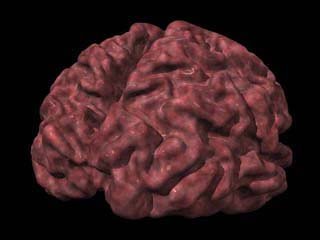Belly fat has long been a concern for physical health, but recent studies have highlighted its potential impact on cognitive health. Research has unearthed a compelling link between excess abdominal fat and the heightened risk of developing Alzheimer’s disease.
What Research Reveals
A study published in a recent health journal delved into the relationship between visceral fat—fat stored around the abdomen—and the risk of Alzheimer’s disease. The findings were eye-opening, suggesting that individuals with higher levels of belly fat had a significantly increased risk of experiencing cognitive decline and developing Alzheimer’s later in life.
This study not only highlighted the correlation between belly fat and Alzheimer’s but also shed light on how visceral fat affects brain health. The fat stored around the abdominal organs releases certain chemicals that could potentially impair cognitive function over time.
The Role of Lifestyle Factors
While genetics may play a role in predisposition to both belly fat accumulation and Alzheimer’s disease, lifestyle factors can significantly influence their development. Diet stands out as a critical factor in both maintaining a healthy weight and safeguarding brain health.
Adopting a balanced diet, rich in antioxidants and healthy fats, proves instrumental in reducing belly fat and potentially lowering the risk of cognitive decline. Coupled with a regular exercise regimen, these lifestyle changes can combat visceral fat accumulation and bolster overall brain health.
Understanding Alzheimer’s Disease
Alzheimer’s is a progressive neurodegenerative disorder characterized by a decline in cognitive function and memory loss. The link between belly fat and Alzheimer’s lies in the impact of excess fat on brain function. Researchers suggest that visceral fat triggers inflammatory processes that can adversely affect the brain, accelerating cognitive decline.
Tips to Reduce Belly Fat
To combat belly fat and mitigate the associated risks, adopting a holistic approach is paramount. Incorporating whole foods, such as fruits, vegetables, and lean proteins, into one’s diet can aid in weight management and reduce visceral fat. Additionally, engaging in targeted exercises, like high-intensity interval training (HIIT) or core-strengthening workouts, can effectively reduce abdominal fat.
Other Health Implications of Reducing Belly Fat
Beyond diminishing the risk of Alzheimer’s, shedding excess belly fat yields numerous health benefits. Lowering visceral fat levels can improve overall cardiovascular health, decrease the likelihood of diabetes, and boost one’s metabolic profile. Moreover, a healthier lifestyle positively impacts mental well-being, enhancing mood and reducing stress levels.
Myths and Misconceptions
There are prevalent misconceptions surrounding belly fat reduction, often leading to ineffective practices. Crash diets and quick fixes promise rapid results but often fail to address the root cause of visceral fat accumulation. Understanding that sustainable lifestyle changes are key to long-term belly fat reduction is crucial.
Medical Perspective
Health professionals emphasize the significance of preventive healthcare in reducing belly fat and lowering Alzheimer’s risk. Routine check-ups, maintaining a healthy weight, and following a balanced diet form the cornerstone of preventive measures against cognitive decline associated with belly fat.
Conclusion
The connection between belly fat and Alzheimer’s risk underscores the importance of adopting a healthy lifestyle. By prioritizing a nutritious diet, regular exercise, and preventive healthcare, individuals can not only reduce visceral fat but also potentially mitigate the risk of cognitive decline and Alzheimer’s disease.
FAQs
- Does belly fat directly cause Alzheimer’s?
- Belly fat doesn’t directly cause Alzheimer’s but is strongly correlated with an increased risk due to its impact on brain health.2
- Can targeted exercises alone reduce belly fat?
- While targeted exercises can help, adopting a comprehensive approach that includes dietary changes is more effective in reducing belly fat.
- Are there specific foods that can help reduce belly fat?
- Certain foods, like fruits, vegetables, and lean proteins, are beneficial in reducing belly fat when part of a balanced diet.
- Is there a particular age group more susceptible to the link between belly fat and Alzheimer’s?
- The risk is higher as individuals age, but adopting a healthy lifestyle at any age can positively impact belly fat accumulation and cognitive health.
- How soon can lifestyle changes show a reduction in belly fat and associated risks?
- Consistent lifestyle changes typically show noticeable improvements in several weeks to months, but individual results may vary.

